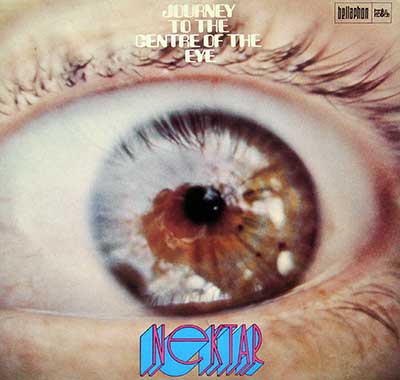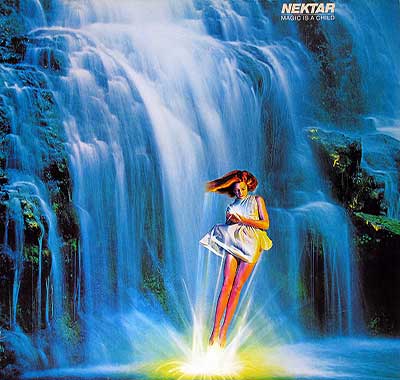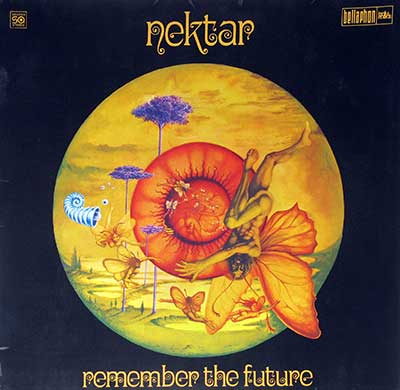NEKTAR Band Description:
Nektar's story isn't confined to a single country. Their unique sound was born in Hamburg, Germany, in 1969. However, it took a bold move for the band to truly flourish. Recognizing the thriving progressive rock scene in the United Kingdom, Nektar relocated and began carving their niche within the British music world.
This transatlantic journey was pivotal. Their spacey, intricate compositions resonated with British audiences, catapulting them to prominence within the prog-rock movement. Albums like "Remember the Future" and "A Tab in the Ocean" earned them both critical respect and a loyal fanbase.
From their genesis in Germany to making waves in Britain, Nektar became leading luminaries of the progressive rock movement during the 1970s. Their music was a captivating mix of driving rock energy, atmospheric soundscapes, otherworldly lyrics, and a penchant for epic compositions.
Early Explorations: 'Journey to the Centre of the Eye'
Nektar's 1971 debut album, "Journey to the Centre of the Eye," marked their arrival as space-rock pioneers. This concept album, loosely inspired by cosmic themes, takes listeners on an interstellar odyssey filled with mesmerizing sonic explorations. Tracks like "Astronaut's Nightmare" demonstrate the band's instrumental synergy, while others delve into dreamlike, atmospheric territories.
Conceptual Masterpiece: 'Remember the Future'
1973's "Remember the Future" cemented Nektar's reputation as masters of the progressive concept album. The tale of a blind boy with heightened perception unfolds across a suite of tracks, blending hard rock with ethereal keyboard passages. Their iconic light shows brought the album's cosmic vision to life in concert, creating an immersive experience for their dedicated fanbase.
Shifting Sounds: 'Magic is a Child'
Change was in the air for Nektar with 1977's "Magic is a Child." This album marked a departure from the band's space-rock roots towards a more streamlined and accessible sound. While still retaining their knack for intricate arrangements, "Magic is a Child" showcases a warmer, melodic direction that hints at the band's evolution in the face of changing musical trends.



